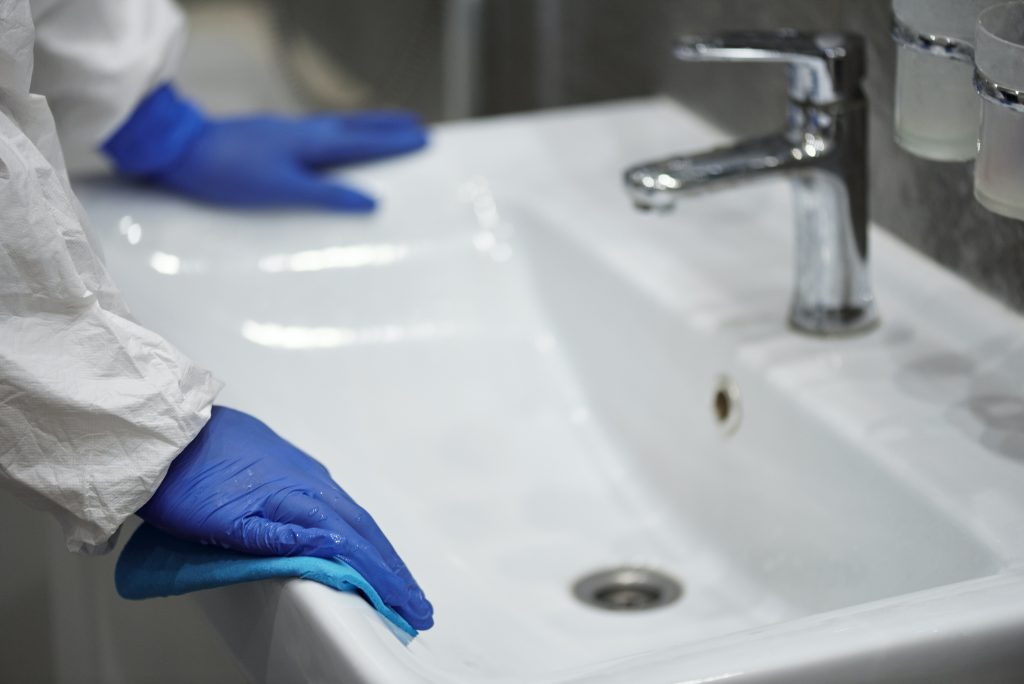Plumbing problems are an annoyance that every homeowner deal with. The most typical plumbing concerns include clogged drains and toilets, leaky faucets and pipes, water heaters problem, poor water pressure, running toilet, and more. Therefore, a unique solution is needed for each of these.
Of course, prevention is better than cure, and by anticipating the types of problems that are most likely to arise, you can reduce their likelihood of happening or getting worse.

Here in the article we have listed 7 common plumbing problems, along with their solutions. If you have some basic tools and are ready to learn, you can handle some issues quite easily.
1. Clogged Drains and Toilets
Every homeowner’s worst nightmare is having clogged drains and toilets. When water from your kitchen, bathroom, toilets, and showers back up instead of flowing out, it obvious sign that you need help.
The most frequent causes of clogging are the accumulation of dirt, debris, sludge, hair, and other clogging materials in the pipes. With a plunger or unclogging chemicals, you can rapidly clear minor obstructions from your pipes. If that doesn’t fix the problem, call a residential plumber immediately.
2. Low Water Pressure
Low water pressure is a common cause of plumbing issues in old homes, but it can also occur in newer homes. Depending on the source, low water pressure can appear suddenly or develop gradually over time.
Whatever the cause, improving the situation is necessary to resume regular water consumption because low water pressure makes it challenging to wash dishes and take showers.
3. Frozen Pipes
Frozen pipes are another household plumbing issue that every homeowner, especially if you reside in a region that experiences lengthy and severe winters. Water pipes in the wintertime are susceptible to freezing, expanding, and bursting. If you want to reduce the chance of exploding your pipes, make sure you cover pipe with insulation.
4. Leaking Faucets and Pipes
Apartments and homes frequently experience plumbing issues with leaking faucets and pipes. If you don’t find the issue right away, leaking pipes might result in significant damage. After some time, you can usually see a puddle underneath the pipes or hear dripping, which indicates that the pipes are leaking. It is advisable to call a plumber to replace the washer if the issue worsens.
5. Water Heater Issues
Water heater problems are typically simple to identify. When you go to take that lovely warm shower, the water is freezing cold. Other indications of a problem include dripping water, puddles of water, water that is discoloured, and noises emanating from the water heater unit.
Some problems with water heaters you can resolve by yourself, but many of them are complicated and potentially dangerous, requiring professional assistance.
6. Running Toilet
A running toilet is one of the most inconvenient types of toilet plumbing issues. The toilet is still functional, but it keeps running, wasting water and making a loud noise.
The most frequent source of this problem is an internal mechanism acting improperly, like the flapper valve. Running toilets may also be the result of an interior component breakage or leak. As a temporary fix, you can mend or replace the damaged component. You might need to replace your toilet if that does not resolve the problem.
7. Sump Pump Failure
Failures of the sump pump may be caused by internal or external problems. Sump pump failures frequently result from blocked discharge pipes, jammed switches, excessive water, incorrect sump pump installation, and other factors.
Tips for handling your household plumbing repairs
You can save money by handling your own plumbing emergency repairs, but a mistake might cost you much more and cause damage to your property. If you intend to fix a plumbing issue by yourself, keep the following advice in mind:
- Make sure you comprehend the issue and the solution completely. Call a professional instead if the project’s scope makes you uncomfortable.
- Secure top-notch safety equipment and material required for the project. Make sure that every item you purchase fits perfectly and will function in your plumbing system.
- To avoid significant water damage, turn off the main water supply to the house.
If the project turn worse, have a plumber on your side. Don’t be reluctant to call the plumber if things become challenging.
Thanks for sharing this informative tips.